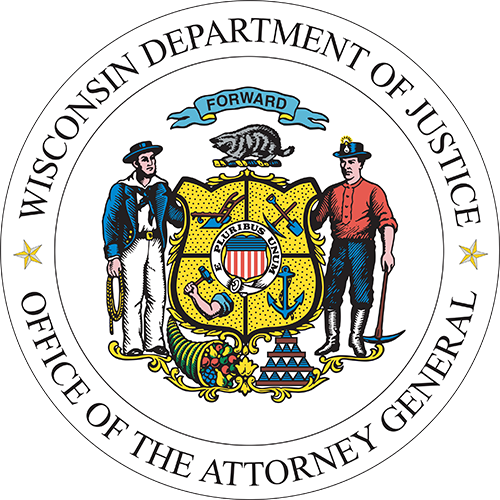AG Kaul Recognizes Survivors During Sexual Assault Awareness Month
MADISON, Wis. – As Sexual Assault Awareness Month kicks off, Attorney General Josh Kaul is recognizing survivors of sexual assault and sharing resources available through the Wisconsin Department of Justice (DOJ). According to the Uniform Crime Reporting (UCR) program, published by DOJ’s Bureau of Justice Information and Analysis (BJIA), there were 4,601 sex offenses reported to law enforcement in Wisconsin in 2020. Understanding that sexual assaults are underreported, it is likely that the actual number of sexual assaults committed in Wisconsin in 2020 is much higher.
While it is important to acknowledge the significance of statistics, it is critical to remember that data only tells part of the story. What statistics cannot show is the trauma impact on a survivor following a sexual assault. This trauma can have an emotional, mental, and physical impact to the survivors.
“DOJ is committed to supporting survivors of sexual assault,” said Attorney General Josh Kaul. “It’s critical that survivors have access to victim services and that criminals who commit sexual assault are brought to justice.”
To support survivors, and to improve the criminal justice response when a survivor reports an assault, DOJ is proud to offer the following resources:
OCVS
Within DOJ is the Office of Crime Victim Services (OCVS) which houses many resources and programs for crime victims, their family and friends, victim service providers, and criminal justice professionals. OCVS is at the center of all of DOJ’s efforts to support survivors of sexual assault. OCVS administers several grant programs that support survivor access to sexual assault services statewide, including the Sexual Assault Victim Services (SAVS) grant and the Violence Against Women Act Sexual Assault Service Provider (VAWA SASP) grant. The resources of these programs support rape crisis centers; personal, legal, and medical advocacy services; 24/7 crisis lines; support groups; and community outreach efforts throughout Wisconsin. OCVS also administers the Wisconsin Sexual Assault Forensic Exam (SAFE) Fund, which reimburses health care providers directly for the cost of a forensic medical exam for victims of sexual assault, and the Crime Victim Compensation Program, which can assist victims with crime-related out-of-pocket expenses such as lost wages, medical and mental health expenses.
To find local support for sexual assault survivors, please visit https://www.doj.state.wi.us/ocvs/find-local-crime-victim-resources
Sexual Assault Kit Reform
In December of 2021, Governor Evers signed sexual assault kit reform into law. The law seeks to ensure that sexual assault kits (SAKs) in Wisconsin are collected and sent to the Wisconsin State Crime Labs in an efficient and expedient manner. The Attorney General’s Sexual Assault Response Team (AG SART) played a key role in developing the legislation. Prior to this legislation, there was no clear statutory procedure for the collection and processing of sexual assault kits. This lack of a standard process contributed to thousands of kits not being submitted to the state crime laboratory for testing until recent state and national efforts. This new law creates procedures that will prevent a backlog in the future.
The AG SART originated the Wisconsin Sexual Assault Kit Initiative (WiSAKI), which is a statewide effort to address the accumulation of unsubmitted sexual assault kits (SAKs) in the possession of local law enforcement agencies and hospitals.
By Your Side
DOJ and the Wisconsin Coalition Against Sexual Assault (WCASA) partnered to develop By Your Side, a resource created as part of the WiSAKI, to help sexual assault survivors learn about the status of their sexual assault kit and find supportive services in their community. The services are free and confidential. These community-based sexual assault service providers offer emotional support, information, and referrals no matter how long ago the sexual assault happened. They can answer a hotline call, meet a survivor at a hospital for an exam, explain the criminal justice system, and assist with basic needs like safe housing or maintaining employment. The services are also available to family members, partners, and friends of a survivor who are dealing with their own reaction to the sexual assault.
Sexual Assault Response Teams
DOJ offers guidance and support for local communities to develop and sustain a Sexual Assault Response Team (SART). A SART can minimize the potential for re-traumatizing a survivor when engaging with the criminal justice system by initiating a collaborative response to provide support, information, options, and resources as survivors engage with the criminal justice system. SARTs have identified several improvements to survivors’ participation in the criminal justice system, including:
- Survivors more likely to receive referrals to advocacy services
- Survivors more likely to receive referrals to medical services
- Improvements in support for survivors in the criminal justice system process
- Increase in the number of assaults reported to law enforcement
- Survivors more engaged with the investigation
- Survivors more engaged with prosecutors during court prep
The trauma-informed response of a SART not only benefits survivors but multidisciplinary partners as well.
Clergy and Faith Leader Abuse Initiative
DOJ has also launched the Clergy and Faith Leader Abuse initiative. The primary goal of this initiative is to provide victims and survivors with an independent and thorough review of the sexual abuse committed by clergy and faith leaders in Wisconsin, no matter when that abuse occurred. Through this initiative, DOJ will provide victims and survivors with a safe and confidential means to obtain support from the DOJ Office of Crime Victim Services and referrals to available service providers. The initiative also provides a confidential means for:
- victims and survivors to report sexual abuse by clergy and faith leaders; and,
- others who have witnessed, know about, or suspect such abuse to report it.
DOJ will review all reports and refer them, with the victim’s consent, to local law enforcement when appropriate.
DOJ is continuing to take reports from survivors of clergy or faith leader abuse or their friends and family. All are encouraged to report that information to DOJ either online at SupportSurvivors.widoj.gov or by calling 1-877-222-2620.
